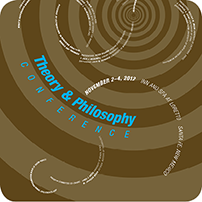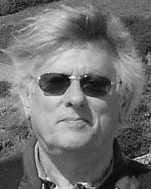Hume's Words of Wisdom

J. E. R. Staddon (Duke University)

John Staddon is the James B. Duke professor of psychology and professor of biology and neurobiology emeritus at Duke University. He has served as faculty secretary and ex-officio member of the Executive Committee of the Academic Council since 2002. He has obtained his Ph.D. in experimental psychology from Harvard University, conducted research at the MIT Systems Lab, and taught at the University of Toronto. He also has done research at Oxford University in the United Kingdom, the University of São Paulo at Riberão Preto, the University of Mexico, the Ruhr Universität, Universität Konstanz, the University of Western Australia, and is an honorary visiting professor at the University of York in the United Kingdom. He is a fellow of several scientific organizations including the American Association for the Advancement of Science and the Society of Experimental Psychologists, and has a "docteur honoris causa" from the Université Charles de Gaulle, Lille 3, France. His research is on the evolution and mechanisms of learning in humans and animals and the history and philosophy of psychology and biology. Dr. Staddon is a past editor of the journals Behavioural Processes and Behavior & Philosophy. His laboratory has studied the simulated detection of landmines, optimality analysis and behavior, mechanisms of choice behavior, and interval timing in animals. His recent theoretical work includes papers on operant conditioning, memory, timing, and psychobiological aspects of ethical philosophy. He has written and lectured on public-policy issues such as education and evolution, traffic control, smoking, and the effects of social and biological processes on financial markets. He is the author of more than 200 research papers and five books, including The New Behaviorism: Mind, Mechanism and Society, Adaptive Dynamics: The Theoretical Analysis of Behavior, and Adaptive Behavior and Learning. He has a new book, The Malign Hand of the Markets, scheduled for publication in May 2012.
Abstract: David Hume argued-Dr. Staddon believes irrefutably-that "ought" cannot be derived from "is." That is, no set of facts, no amount of scientific knowledge, is by itself sufficient to urge us to action. Yet, generations of well-meaning scientists-more and more as the years go by and secular influences grow in the West-seem to have forgotten Hume's words of wisdom. All motivated action depends ultimately on belief or beliefs that cannot be proved by the methods of science.